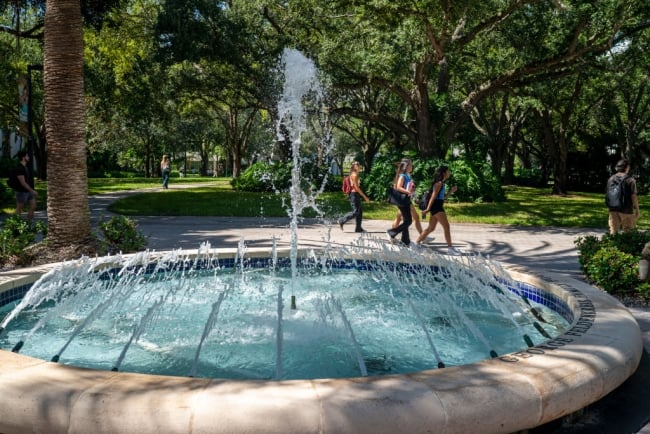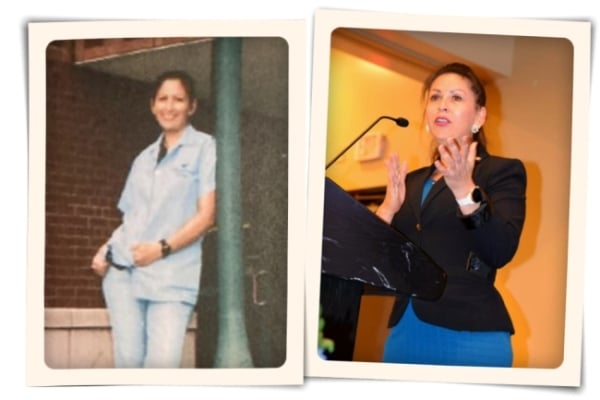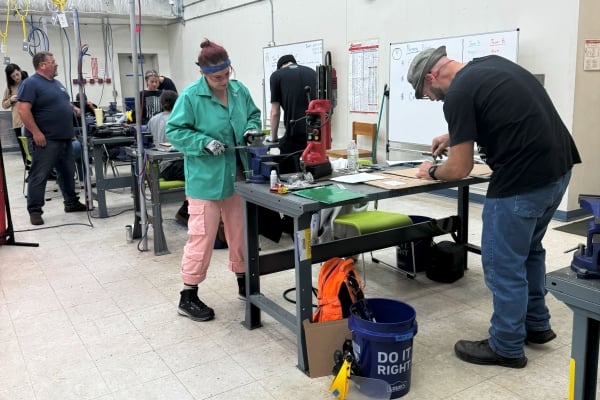You have /5 articles left.
Sign up for a free account or log in.

Students walk through campus Oct. 2, 2024, on the grounds of the University of Miami in Coral Gables, Fla.
Robert Nickelsberg/Getty Images
The day many of us thought couldn’t arrive soon enough is here: Election Day 2024. After more than a year of disinformation, divisive claims, relentless fundraising texts and one very big plot twist, you’d be forgiven for feeling election fatigue.
For some in the higher education community, Election Day 2024 comes with additional unease. Each election sparks its own set of campaign issues, but higher education has been thrown into the fray this cycle, becoming a topic to debate or dispute. Having a college degree has become an indication of how someone will vote. Polls show Americans are losing faith in the value of a higher education. Meanwhile, Congress has put university presidents on public trial, and several have failed.
If you just need a break from it all or want to be reminded that higher education can change someone’s life for the better, here is a list of good-news stories from Inside Higher Ed to distract you from the fever pitch of election coverage—if only for one day.
From Lone Star College Custodian to Dean
Reyna Gómez Tippetts says community colleges are “the gateway for education” and provide an opportunity “to help you get to the next step.”

The Scientists Fighting Misinformation One Fire Breath at a Time
Scientists have the knowledge to combat misinformation online, and now some are receiving the institutional support to communicate with a broad public audience.

Colleges Fights Homesickness With Pet-Friendly Policies
Administrators hope the new policies not only address student health and wellness concerns but also help recruit animal-loving learners.

College Is Worth It to Black, Latino and Indigenous Students
New research from the Pell Institute finds that, despite challenges and setbacks students of color face in pursuit of a college degree, BIPOC learners see value in higher education. The report offers 13 recommendations to improve success for these learners.

Expanding Access to the Microcredential Generation
A fast-growing number of traditionally college-age students are bypassing degrees to pursue cheaper and faster alternative credentials. Why are so many choosing this path, and will the journey pay off?




